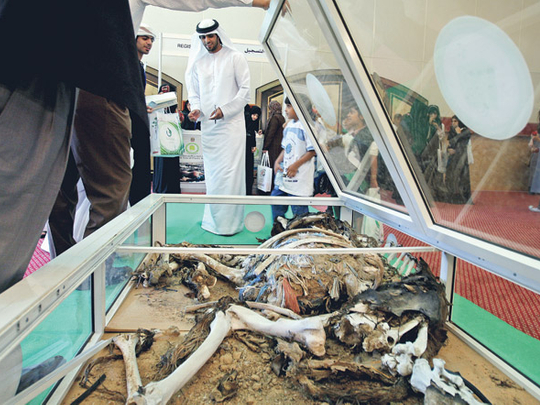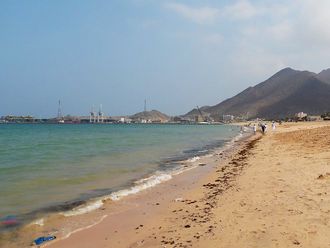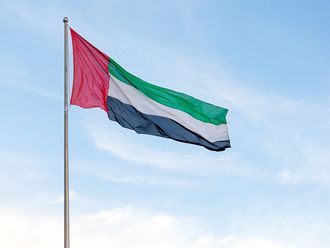
Dubai: The carcass of a long-dead camel, ribs covering a tangled mass of faded blue and white plastic bags inside what was once its stomach, is not what the children expected to find lying in the middle of their school hall.
Yet this is one of the terrible outcomes of the UAE's annually produced two billion plastic bags.
Wide-eyed students crowd around the skeletal form, a big mound of plastic protruding from its gut, as their teacher explains how the impacts of plastic debris are far reaching, killing gazelles and donkeys too, who eat then essentially suffocate and starve to death.
The Ministry of Environment and Water is touring schools and universities to spread awareness on what pollution and litter can do to the natural world. This shock-and-awe technique will be useful; it is hoped, in deterring children, adults, shoppers and packers to reduce their consumption of plastic bags, or at least dispose of them appropriately.
"Fifty per cent of camels that die, do so from having eaten plastic bags as you can see here," said Mariam Al Shenasi, executive director for technical affairs at the Ministry of Environment and Water. "It's obvious when you see this that plastics are bad for the environment. We are targeting the youth to give them the real picture of what we see at the ministry. It is not enough to give them instructions without teaching them what our behaviour is causing in nature," she said.
This exhibition called My Environment is my National Responsibility, will run until Wednesday at the University of Jazeera in Al Twar, where more than 10,000 students from all over the UAE have been registered to attend.
According to Mariam, the remains of animals that have perished to plastic litter are found nationwide. As Gulf News reported in 2008, one area was called ‘death valley' in Ras Al Khaimah due to the sheer number of dead animals found there, stomachs full of trash. A preliminary study conducted by the ministry pegs the annual production of plastic bags in the UAE at approximately two billion, however the exact figure will be known at the end of 2010 when the study is complete, Mariam said. "Most bags are used in the UAE," she added.
The ministry's ongoing campaign UAE Free of Plastic Bag is geared towards ridding the UAE of plastic bags. Factories will have to switch to producing biodegrable plastic bags, made by adding an additive that gives plastic a shelf life. One of these bags will disintegrate in a matter of months, rather than centuries.
Wedad Surour, 34, an Emirati mother of four and student at the University of Jazeera said it is imperative for parents to teach their children to pick up after themselves, especially when picnicking outdoors.
In numbers: Plastic menace
1 in 2 camels die from eating plastic litter
2 billion plastic bags are produced in the UAE
2013: The UAE will ban non-biodegradable plastic bags
Have your say
- Do such shock and awe tactics work? Have you come across effective campaigns initiated by school pupils?
Tell us about them












